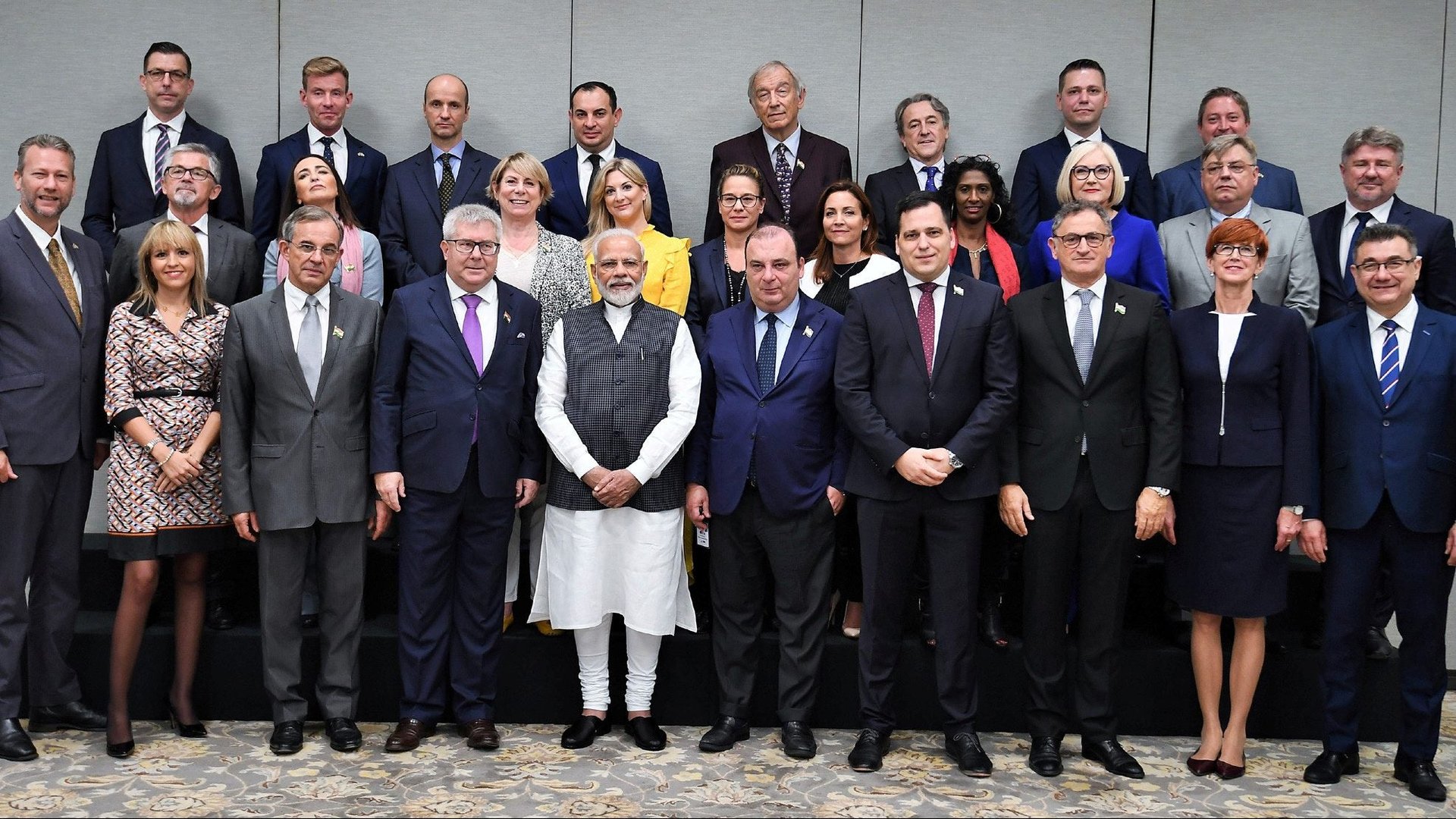A French far-right politician explains why he accepted an invitation to locked-down Kashmir
An unofficial delegation of more than 20 members of the European Parliament (MEPs) traveled to the Indian-administered part of the disputed territory of Kashmir this week, setting off a controversy in India and beyond about the purpose of the trip and the person who organized it. At least one member of the delegation—Thierry Mariani, who’s affiliated with France’s far-right Rassemblement National party—told Quartz that the trip was worthwhile because “Kashmir is a region to follow. The risk is that the [terrorist] home could move and that we could have a sort of second Afghanistan in Kashmir, with an extremely ambiguous attitude on the part of Pakistan, which is evidently helping them.”


An unofficial delegation of more than 20 members of the European Parliament (MEPs) traveled to the Indian-administered part of the disputed territory of Kashmir this week, setting off a controversy in India and beyond about the purpose of the trip and the person who organized it. At least one member of the delegation—Thierry Mariani, who’s affiliated with France’s far-right Rassemblement National party—told Quartz that the trip was worthwhile because “Kashmir is a region to follow. The risk is that the [terrorist] home could move and that we could have a sort of second Afghanistan in Kashmir, with an extremely ambiguous attitude on the part of Pakistan, which is evidently helping them.”
This echoes comments made by Indian foreign ministry spokesman Raveesh Kumar. “The MEPs’ statements’ clearly reflected that they understand the ground situation and how terrorism poses a threat to India,” Kumar said. “We are supposed to share our perspective with different group of people. We feel that this is in the larger interest.”
According to Mariani, Kashmir is in “an extremely tense situation. But the representatives we met were pretty positive in terms of, they didn’t know if it would change things, but since the situation in the past was catastrophic for them anyways, they were hopeful and were waiting to see how things could evolve.”
The MEPs’ visit came just days before India formally divided the Himalayan state of Jammu and Kashmir into two new federally-administered territories. The planned division went ahead today‚ Oct. 31. It was announced on Aug. 5, when India unilaterally repealed an article in its constitution that granted Kashmir semi-autonomous status.
In the weeks since India scrapped Kashmir’s special status, the state has been under a lockdown, with internet access cut off, and mobile connectivity unavailable until recently. Thousands of extra paramilitary forces sent there in August remain. In late August, a delegation of Indian MPs led by Rahul Gandhi, of the main opposition Congress Party, was stopped at the airport in Srinagar, the capital of Kashmir, and prevented from traveling around the state.
That explains why the sudden arrival in Kashmir on Oct. 29 of a group of MEPs from different European countries quickly became controversial in India. The logistics of the two-day unofficial visit provoked further controversy. It was organized by Madi Sharma, who identified herself as president of the Women’s Economic and Social Think Tank (WESTT), and sponsored by the International Institute for Non-Aligned Studies. Indian outlets such as News18 and NewsLaundry have raised questions about the leadership, purpose, and funding of these organizations.
Observers pointed out that the political makeup of the group of MEPs skewed heavily towards right-wing and far-right parties, whose views on issues such as terrorism and security might be more closely aligned with those of India’s Hindu nationalist BJP government.
Critics also focused on Sharma’s email invitation from early October for MEPs to attend a “prestigious VIP meeting” with Indian prime minister Narendra Modi and other government officials. According to broadcaster New Delhi Television Limited (NDTV), Sharma appeared to be speaking on behalf of the prime minister, casting doubts as to the nature of this visit, which French MEP Mariani called “informal.” He told Quartz that Sharma attended the meeting with Modi and was present throughout the trip, sometimes serving as an interpreter for members of the delegation who were not native English speakers.

Some activists expressed concerns that the MEPs would be given a one-sided view of the situation on the ground in Kashmir. In response, Mariani argued that government control was justified because of daily separatist violence. “[I]t is a region where terrorism reigns, and so unfortunately, that leads to a control that can at times be, I’m not going to say violent, but can be radical, well, not radical, but leads to measures that are unpleasant,” he told Quartz. “While we were there, there was the fifth or fourth truck driver stopped and assassinated, because the main driver of Kashmir’s agriculture are apples, and so they have decided…to target truck drivers to try to stop the economy. We heard about a family of farmers that had been assassinated overnight.”
Mariani said the MEPs did not yet have concrete plans as to what actions might come out of this trip, though he mentioned a possible meeting with experts in Brussels. “For me and my colleagues, it was an informational visit on the situation,” he said. “Anyways, unfortunately, I think that we are going to be talking about Kashmir frequently, because the situation seems to be degrading itself, security-wise.”